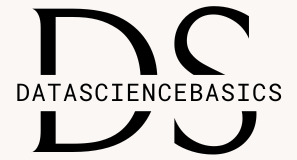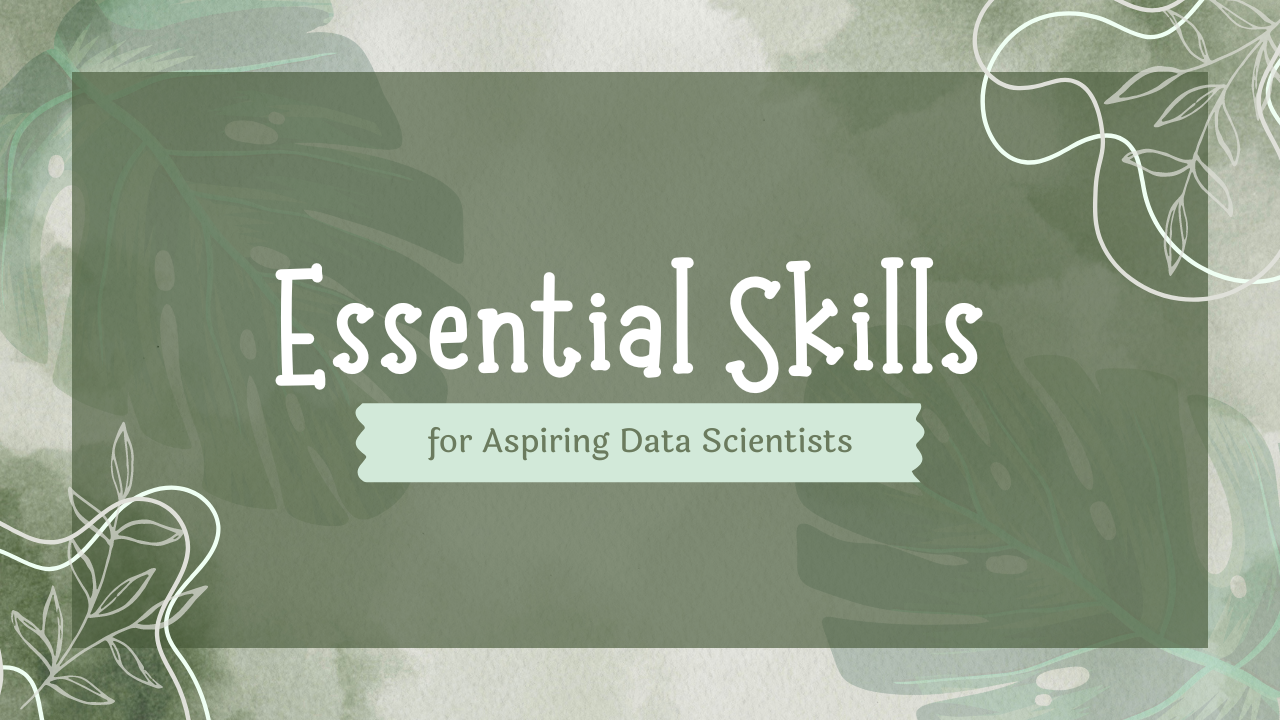In today’s data-driven world, the demand for skilled data scientists continues to rise as organizations seek to extract valuable insights from the vast amounts of data at their disposal. Data science is a multidisciplinary field that requires a combination of technical expertise, analytical skills, and domain knowledge. In this blog article, we’ll explore the essential skills that aspiring data scientists need to succeed in this dynamic and rapidly evolving field.
1. Programming Skills
Proficiency in programming languages is a fundamental requirement for data scientists. Some of the most commonly used programming languages in data science include:
- Python: Widely used for its simplicity, versatility, and extensive libraries for data analysis, machine learning, and visualization (e.g., Pandas, NumPy, Scikit-learn, Matplotlib, TensorFlow, PyTorch).
- R: Popular among statisticians for its robust statistical analysis capabilities and rich ecosystem of packages for data manipulation, visualization, and modeling (e.g., dplyr, ggplot2, caret).
- SQL (Structured Query Language): Essential for querying and manipulating relational databases, extracting data for analysis, and performing data wrangling tasks.
Aspiring data scientists should focus on mastering at least one programming language and become proficient in using it for data manipulation, analysis, and modeling tasks.
2. Statistical Knowledge
A strong foundation in statistics is essential for data scientists to understand and interpret data, build predictive models, and draw valid conclusions from analyses. Key statistical concepts and techniques include:
- Descriptive Statistics: Summarizing and describing the characteristics of data using measures such as mean, median, mode, standard deviation, and percentiles.
- Inferential Statistics: Drawing conclusions and making predictions about populations based on sample data, including hypothesis testing, confidence intervals, and regression analysis.
- Probability Theory: Understanding probability distributions, random variables, and probabilistic models used in data analysis and machine learning algorithms.
A solid understanding of statistics enables data scientists to design experiments, assess model performance, and make data-driven decisions with confidence.
3. Machine Learning Algorithms
Machine learning is a core component of data science, enabling computers to learn from data and make predictions or decisions without being explicitly programmed. Aspiring data scientists should be familiar with a variety of machine learning algorithms, including:
- Supervised Learning: Algorithms trained on labeled data to make predictions or classifications (e.g., linear regression, logistic regression, decision trees, support vector machines, random forests).
- Unsupervised Learning: Algorithms used to discover patterns and relationships in unlabeled data, such as clustering (e.g., K-means clustering, hierarchical clustering) and dimensionality reduction (e.g., Principal Component Analysis).
- Deep Learning: Neural network architectures for modeling complex patterns in large datasets, used in applications such as image recognition, natural language processing, and speech recognition (e.g., convolutional neural networks, recurrent neural networks, transformer models).
Understanding the strengths, limitations, and appropriate use cases of different machine learning algorithms is essential for building effective predictive models and extracting insights from data.
4. Data Wrangling and Visualization
Data wrangling involves cleaning, transforming, and preparing raw data for analysis, while data visualization focuses on creating meaningful visual representations of data to communicate insights effectively. Essential skills in data wrangling and visualization include:
- Data Cleaning: Handling missing values, outliers, and inconsistencies in data through techniques such as imputation, filtering, and outlier detection.
- Data Transformation: Reshaping and transforming data using techniques like normalization, scaling, and feature engineering to improve model performance.
- Data Visualization: Creating informative and visually appealing charts, graphs, and dashboards using tools like Matplotlib, Seaborn, Plotly, and Tableau to explore and communicate insights from data.
Proficiency in data wrangling and visualization enables data scientists to preprocess data effectively, identify patterns and trends, and present findings in a clear and compelling manner to stakeholders.
5. Domain Knowledge
In addition to technical skills, domain knowledge is crucial for data scientists to understand the context and nuances of the data they are analyzing. Domain knowledge refers to expertise in a specific industry or subject area, such as healthcare, finance, e-commerce, or marketing.
By combining technical skills with domain expertise, data scientists can develop tailored solutions, identify relevant variables, and generate actionable insights that address real-world challenges and drive value for organizations.
Conclusion
Becoming a successful data scientist requires a diverse skill set encompassing programming, statistics, machine learning, data wrangling, visualization, and domain knowledge. By developing proficiency in these essential skills, aspiring data scientists can unlock the potential of data to solve complex problems, drive innovation, and make informed decisions across various industries and domains.
Whether you’re just starting your journey into data science or looking to advance your skills, focusing on mastering these key areas will set you on the path to success in this exciting and rewarding field.


I am not sure where you’re getting your info, but good topic. I needs to spend some time learning much more or understanding more. Thanks for magnificent info I was looking for this information for my mission.
Glad to know that I am able to help you. Stay tuned for more such posts.
I was recommended this website by my cousin. I am not sure whether this post is written by him as nobody else know such detailed about my difficulty. You are wonderful! Thanks!